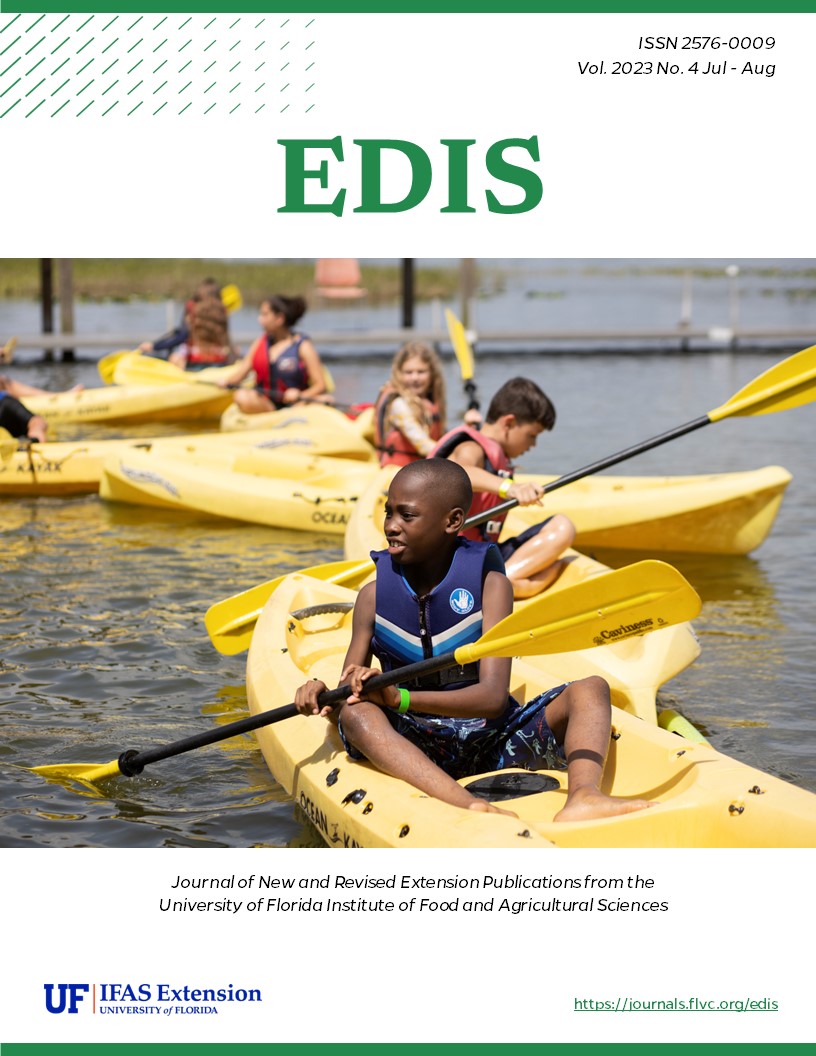Abstract
Due to increasing marketing and production risks in specialty crop production, a shift toward more protected culture systems such as a high tunnel production system is crucial to keep specialty crop farms profitable and sustainable in the United States. In this publication, we analyzed the cost of constructing high tunnels and caterpillar tunnels in Florida and examined the major contributors to their establishment costs. The findings are intended to assist farmers in deciding whether or not to add high tunnel or caterpillar tunnel systems to their farming operations.
References
Bishop, C., H. Gatzke, and K. Curtis. 2010. Small Farm Hoop House Production of Vegetables in Desert Climates Costs & Returns. University of Nevada Extension. Available at https://extension.unr.edu/publication.aspx?PubID=2219 Accessed December 5, 2022.
Butler, B., and L. Bauer. 2013. High Tunnel Production: The Basics for Success and Three Case Studies (FS-957). The University of Maryland Extension. Available at https://extension.umd.edu/resource/high-tunnel-production-basics-success-and-three-case-studies-fs-957 Accessed December 30, 2021.
Carey, E. E., L. Jett, W. J. Lamont, T. T. Nennich, M. D. Orzolek, and K. A. Williams. 2009. “Horticultural Crop Production in High Tunnels in the United States: A Snapshot.” HortTechnology 19 (1): 37–43 https://doi.org/10.21273/HORTSCI.19.1.37
Fraser, C. “Caterpillar Madness: Building the Caterpillar Tunnels.” carol cultivates (blog) Available at https://carolcultivates.com/2014/06/caterpillar-madness/, Accessed April 20, 2023
Galinato, S., C. Miles, S. Ponnaluru. 2012. “2011 Cost Estimates of Producing High-Tunnel Tomatoes in Western Washington (FS090E).” Washington State University Extension. Available at http://ses.wsu.edu/wp-content/uploads/2018/10/FS090E.pdf Accessed December 5, 2022.
Grubinger, V. 2015. “High Tunnels and Other Season Extension Techniques.” SARE Outreach. Available at https://www.sare.org/resources/high-tunnels-and-other-season-extension-techniques Accessed December 30, 2021
IRS. 2012. Farmer’s Tax Guide. IRS Publication 225. Internal Revenue Service, Washington, D.C. Available at https://www.irs.gov/pub/irs-pdf/p225.pdf Accessed December 30, 2021
Miles, C., R. Wallace, A. Wszelaki, J. Martin, J. Cowan, T. Walters, and D. Inglis. 2012. “Deterioration of Potentially Biodegradable Alternatives to Black Plastic Mulch in Three Tomato Production Regions.” HortScience 47 (9): 1270–1277. https://doi.org/10.21273/HORTSCI.47.9.1270
USDA NRCS. 2022 High Tunnel Initiative. US Department of Agriculture, Natural Resources Conservation Service. Available at https://www.nrcs.usda.gov/programs-initiatives/eqip-high-tunnel-initiative Accessed December 15, 2022
O'Connell, S., C. Rivard, M. Peet, C. Harlow, and F. Louws. 2012. “High Tunnel and Field Production of Organic Heirloom Tomatoes: Yield, Fruit Quality, Disease, and Microclimate.” HortScience 47 (9): 1283–1290. https://doi.org/10.21273/HORTSCI.47.9.1283
Pannell, D. J., G. R. Marshall, N. Barr, A. Curtis, F. Vanclay, and R. Wilkinson. 2006. "Understanding and Promoting Adoption of Conservation Practices by Rural Landholders." Animal Production Science 46:1407–1424. https://doi.org/10.1071/EA05037
Rogers, E. M. 2010. Diffusion of innovations. New York, NY: Free Press, A Division of Simon & Schuster, Inc.
Shaw, M. 2011. Experimenting with Caterpillars: Another Option for Season Extension, Conell Small Farms Program, Available at Experimenting with Caterpillars: Another Option for Season Extension - Cornell Small Farms, Accessed June 30, 2022
USDA NASS. 2022. Agricultural prices. Available at https://usda.library.cornell.edu/concern/publications/c821gj76b, Accessed December 10, 2022

